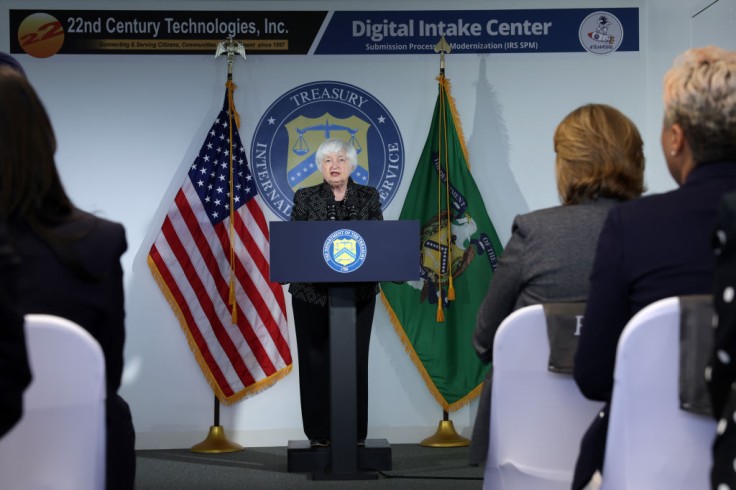
In a groundbreaking move, the Internal Revenue Service (IRS) has unveiled plans to waive approximately $1 billion in fees, extending late-payment relief to millions of eligible taxpayers with balances under $100,000 from tax returns filed in 2020 and 2021.
This strategic initiative is expected to provide substantial financial relief, with an average relief amount of $206 per return for individual taxpayers, businesses, trusts, estates, and nonprofit organizations.
IRS Penalty Waiver Implements Financial Relief for Eligible Taxpayers
The IRS's commitment to automatically removing penalties for eligible taxpayers represents a timely lifeline for those meeting the specified criteria.
Over 4.7 million individuals, including businesses, trusts, estates, and nonprofit organizations, fall within the eligibility parameters.
The relief is poised to ease financial burdens, especially for those who have already paid late-payment penalties for the specified tax years. It's important to note, however, that late-payment penalties for unpaid balances from 2020 and 2021 are set to resume on April 1, 2024.
With the year-end approaching, financial experts are advising eligible taxpayers to capitalize on this opportunity, settling balances and strategically planning to avoid potential enforcement actions.
The taxation authority has declared its intention to eliminate fees, attributing this decision to the disruptions caused by the pandemic. The pandemic-induced operational challenges significantly impacted the Internal Revenue Service (IRS), resulting in a substantial backlog of unprocessed tax returns.
The relief initiative seeks to address the predicament arising from the IRS's choice to suspend notifications to taxpayers with outstanding debts.
Despite the IRS's forthcoming resumption of regular collection notices, officials emphasize that this announcement serves as a one-time relief measure prompted by the unprecedented disruptions caused by the pandemic.
Implications for Failure-to-File Penalty and Interest for Taxpayers
While the IRS's waiver primarily addresses the failure-to-pay penalty, set at 0.5% of unpaid taxes per month or partial month (capped at 25%), eligible taxpayers must remain cognizant of potential implications for the failure-to-file penalty and interest.
The late filing penalty, standing at 5% of unpaid taxes per month or partial month (with a maximum fee of 25%), coupled with current interest rates at 8% per year, compounded daily, underscores the importance of making informed decisions regarding outstanding balances.
Navigating these nuances ensures that taxpayers approach their financial obligations with clarity.
Normal Collection Mailings Resumes in 2024
The IRS's fee waiver aligns seamlessly with the agency's upcoming resumption of normal collection notices, temporarily halted in February 2022 due to the impact of the COVID-19 pandemic.
Expressing concern about taxpayers receiving unexpectedly large tax bills after the pause, IRS Commissioner Danny Werfel emphasized the necessity of penalty relief as a common-sense approach.
Commencing next month, the IRS will initiate a proactive measure by sending a "special reminder letter" to inform taxpayers about their liability, payment options, and details regarding the penalty relief. This anticipatory approach aims to prevent taxpayers from being caught off guard by sudden tax bills.
As we delve into the intricacies of this monumental IRS decision, the significance of late-payment relief for tax years 2020 and 2021 becomes more apparent. This unprecedented move reinforces the IRS's commitment to supporting taxpayers during challenging times.
The strategic integration of keywords such as IRS penalty waiver, late-payment relief, tax year 2020, tax year 2021, and financial relief throughout this article underscores the importance of these developments in the broader context of taxpayer assistance and financial well-being.
Eligible taxpayers are urged to stay informed and take proactive steps to leverage the relief provided by the IRS, ensuring a smoother financial landscape in the coming months.
Related Article: Holiday Health Alert: CDC Stresses Vaccination as Flu, COVID-19, JN.1 Variant Spread